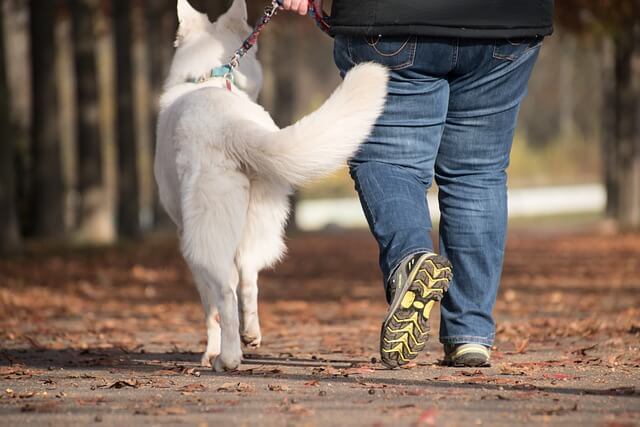4 Reasons You Should Keep In Touch With Your Breeder
09.04.2022.
You likely researched before you chose a breeder and some of the reasons you chose them are:
- They're committed to their work.
- They have a good track record of putting healthy dogs up for sale.
- They were referred to you.
As soon as you bring your puppy home, don't forget to keep in touch with your breeder for at least the first few weeks of the puppy’s life. However, it is a good idea to stay in touch with your breeder for the rest of your life.
Breed expertise is a priceless resource
Your breeder is a wealth of knowledge when it comes to caring for your dog's breed, and they will gladly share that knowledge with you. From puppyhood to old age, they have a deep understanding of your dog's temperament (and even into the senior years). When you have questions about your new pet's behavior, it's always a good idea to keep in touch with the person who bred the animal. It's also a great way to learn more about your pet's entire bloodline (especially the parents), which can give you a sense of the potential of your new puppy.
RELATED: Debunking The 7 Biggest Dog Food Myths. How Many Have You Heard?
Breeders who care about their puppies' individual needs will regularly welcome your calls and emails. Some puppies struggle to gain weight, while others are picky eaters who necessitate more inventive feeding strategies. As for the "terrible twos," some pups go through them, and it's hard not to wonder if they'll ever grow up. With the help of your breeder, you won't have to worry about tearing your hair out over these issues.
Experts in the field of animal husbandry include breeders. In conjunction with your veterinarian, it is possible that they can aid in the detection of difficult-to-identify health issues such as autoimmune or neurological disorders. They can also help you determine whether a problem is health-related or behavior-related.

Your breeder's solutions to common problems are likely to be inventive, and you may be pleasantly surprised. They may even remember something specific about your puppy that they witnessed during their early training and rearing.
RELATED: When Can I Take My Puppy For A Walk? Here’s What Your Vet Might Say
You have a training problem
Puppy and junior training are essential, but many people find it difficult in the early months to maintain a consistent schedule of training for their new pets. Due to their "teenage" years and the onset of hormones, an untrained puppy will have a more difficult time learning new things. Training your dog will help ensure that old commands are not lost and that new ones continue to be learned. Innumerable options are on the table.
While that may seem like a lot of training, puppies lose the skills they learn at this stage of their lives if they aren't regularly practiced. Pups are taken in by new families, who are overjoyed to have a new member of the family to care for, and training may or may not continue.

By keeping in touch with your breeder, you'll be able to continue training your puppy in the long run. Training your puppy, even if it's just a few times a month, will help them retain their skills for the rest of their life.
RELATED: Puppy Shot Schedule: All About Vaccines
Breed specifics
The breeder is just as important as the pet owner. It's a given that they will want to know how your puppy grows, how it behaves, and if they experience any health issues. Having more information about your puppy's genetic line gives breeders an advantage in their efforts to improve the dog's genetics.
There are a few specific ways to help your breeder, even if you don't tell them about everything that happens. The breeder will be able to see how the puppy's general appearance has changed over time by looking at their pictures. The information you provide about a dog's personality, abilities, and work ethic is invaluable to the breeder, who can use it to make educated decisions about breeding.
The most important thing to remember is to always report any health issues you encounter, especially if they are genetic in nature or your veterinarian suspects a genetic link. You never know if it will help your breeder avoid health problems in future litters. Plus, you might want another dog.
Going back to the same breeder if you already have a dog you love is a great option. Find out whether or not the same mother and/or father are breeding puppies, as well as any changes to their genetic makeup since you bought them. Additionally, you'll be able to get the same detailed information about genetics, potential size, and other characteristics as you did with your original purchase. Dogs from successive generations often have similar personalities and features, so your new pup will feel right at home.
RELATED: Puppy Alone Time - Here's How Long You Can Leave a Puppy Alone
Rehoming
Most people don't buy a dog with the intention of giving them away, except for those who are truly irresponsible. Unfortunately, some of us are forced to give our dogs away. In these situations, you may be forced to make difficult decisions about the best course of action for you and your dog, which may include rehoming.
If you suddenly become unemployed, are forced to relocate, have an allergic reaction, or become ill, your breeder wants to know if you will be unable to care for your dog. When you return your dog, they will likely take them, even if they're six months old or 12 years old, to make sure they're well cared for.

According to most breeders, new owners must sign a contract agreeing to return the puppy if something goes wrong. Before you decide to take a puppy, ask the breeder this question. Even if you have no intention of giving your dog up, those genuinely committed to the breed will tell you to call them first. Rehoming your dog back to the breeder is a much better option than putting it in a shelter because they understand how difficult the decision is and will not judge you for it.
RELATED: Best Puppy Harness for Your Furry Buddy
In conclusion
Ask your breeder how to get in touch with them if there are any issues or questions. Most of them are happy to answer the phone but don't count on getting a call back right away unless there is an emergency with your dog.
Buying from a dog breeder is a rewarding and one-of-a-kind opportunity. Once things have settled down and you are satisfied with the care of your dog, consider the breeder to be a member of your extended family and keep in touch with them on a monthly basis at the very least. When your puppy reaches adulthood, you'll be glad you had your breeder on your side.
World Dog Finder team







Share